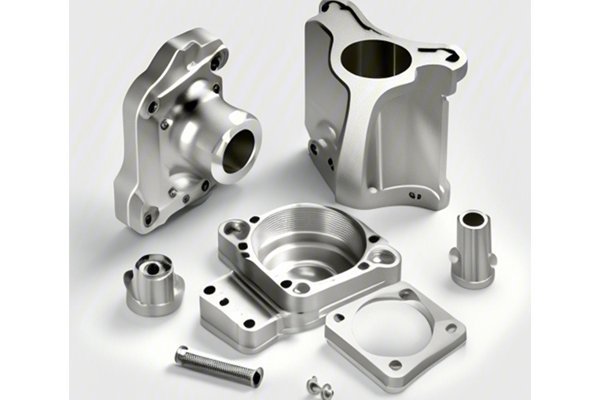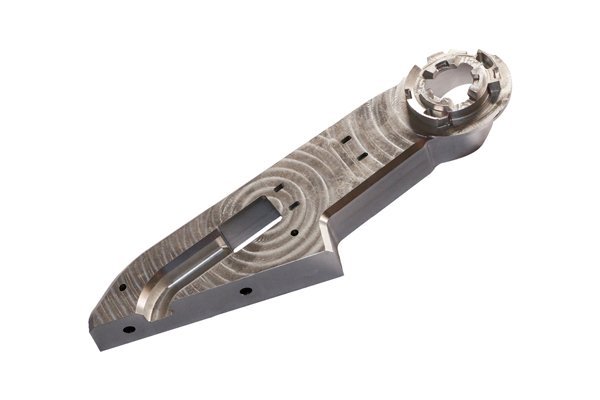Did you know that the global automotive CNC machining market was valued at approximately $1.2 billion in 2020 and is expected to grow steadily over the next few years? This rapid expansion can be attributed to various factors, including advancements in machining technologies, increased demand for lightweight materials like aluminum, and the industry’s ongoing push towards greater efficiency and innovation. In this blog, we’ll explore how CNC aluminum machining is revolutionizing the automotive sector, provide insight into its benefits, and offer detailed solutions to common challenges faced by manufacturers.
Understanding CNC Machining in the Automotive Industry
Computer Numerical Control (CNC) machining is a method that automates the precision manufacturing process of metal components. It utilizes programmed software to control machinery, such as lathes, mills, and 3D printers, enabling unprecedented accuracy and repeatability. The automotive industry has embraced CNC machining due to its comprehensive advantages over traditional machining methods.
The Benefits of CNC Aluminum Machining for Automotive Applications
The transition from heavier materials, such as steel, to lightweight aluminum components is a critical strategy in improving fuel efficiency. According to the U.S. Department of Energy, reducing a vehicle’s weight by 10% can increase fuel economy by approximately 6-8%. By adopting CNC aluminum machining, manufacturers can effectively produce lightweight yet robust components, such as engine blocks, chassis, and transmission parts.
Aluminum exhibits excellent resistance to corrosion, fatigue, and thermal expansion, making it a preferred choice for high-performance applications. CNC-machined aluminum parts ensure consistent quality and durability, which are essential for components subjected to significant stress and heat, such as brakes and suspension systems.
While aluminum tends to be more expensive than some other materials, the high precision and low waste generated by CNC machining can offset those initial costs. Furthermore, the improved speed of production and lower scrap rates lead to overall cost savings in the long run. Automotive manufacturers can achieve a balance between quality and profitability with CNC aluminum machining.
The automotive industry is continuously evolving, with the implementation of new technologies such as electric vehicles (EV) and autonomous driving systems. CNC aluminum machining processes, including CNC milling and turning, allow manufacturers to create complex, intricate designs that accommodate innovative features, including lightweight battery casings and sensor mounts, without compromising structural integrity.
In an industry where time-to-market is crucial, CNC aluminum machining enables rapid prototyping of parts. Manufacturers can quickly create prototypes, test them, and make necessary modifications before moving to full-scale production. This agility allows automakers to respond to consumer feedback and market shifts more effectively.
Common Challenges and Solutions in CNC Aluminum Machining for Automotive Parts

While CNC aluminum machining offers numerous benefits, it isn’t without challenges. Below, we address common concerns and provide solutions to optimize the machining process for automotive applications.
Challenge: The hardness of aluminum can lead to increased tool wear and reduced tool life, compromising part quality and increasing production costs.
Solution: Utilize high-quality cutting tools specifically designed for aluminum machining. Coated tools, like those with titanium aluminum nitride (TiAlN), can improve durability and performance. Regular maintenance and calibration of CNC machines also prolong tool life and ensure consistent quality.
Challenge: During the machining process, aluminum generates chips and shavings that can obstruct machinery, leading to downtime and potential quality issues.
Solution: Implement an effective chip management system, such as blowers or vacuum systems, to keep the work area clean and minimize chip buildup. Additionally, consider optimized cutting parameters to reduce chip formation.
Challenge: The heat generated during machining can lead to thermal deformation of aluminum parts, affecting precision and dimensional tolerances.
Solution: Use appropriate cooling methods, such as flood cooling or mist cooling systems, to dissipate heat and maintain optimal machining temperatures. Employing lubricants designed specifically for aluminum can also help improve surface finish and reduce friction.
Challenge: Different grades and alloys of aluminum exhibit varying properties, which can complicate machining processes.
Solution: Conduct thorough material analysis to understand the unique characteristics of the specific aluminum grade being used. Adjust machining parameters accordingly, including speed, feed rate, and tooling, to optimize performance and precision.
Challenge: Maintaining consistent quality and precision in high-volume production can be challenging.
Solution: Implement strict quality control measures throughout the production process, utilizing advanced measurement techniques such as laser scanners, coordinate measuring machines (CMM), and statistical process control (SPC). Regular audits and assessments will also identify any deviations in part quality.
In summary, CNC aluminum machining presents a multitude of benefits for the automotive industry, including enhanced energy efficiency, improved performance, cost-effectiveness, flexible design capabilities, and rapid prototyping. However, gaining a deep understanding of the machining processes and addressing common challenges is essential for maximizing these advantages.
By adopting CNC aluminum machining, automotive manufacturers can achieve superior quality and consistency in their products, paving the way for innovation in an ever-evolving market. As we move forward into an era of smart manufacturing and sustainable practices, the importance of CNC technology in the automotive realm cannot be overstated.
As an industry professional or enthusiast, staying informed of the latest trends and techniques in CNC aluminum machining is crucial. The choices made today will lay the groundwork for the vehicles of tomorrow. Therefore, it’s worth investing time and resources into understanding how CNC solutions can elevate automotive manufacturing and drive your business forward.






